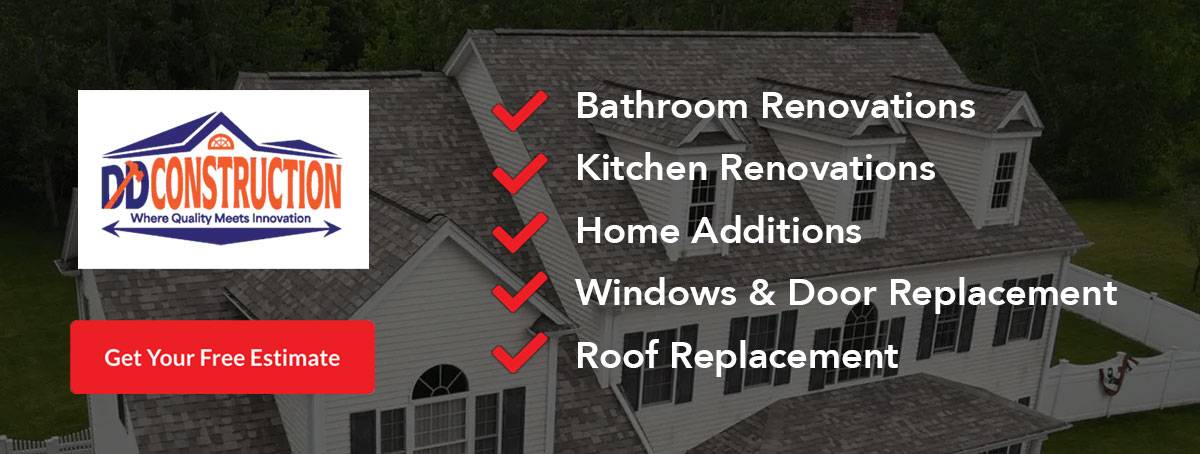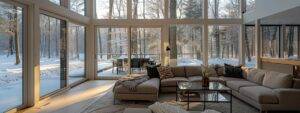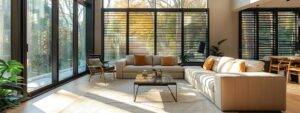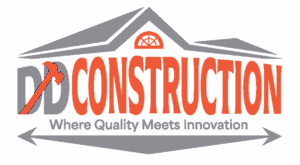An aging home can benefit from upgrading its windows, and Massachusetts homeowners are increasingly turning to window replacement to improve energy efficiency, boost home value, and enhance indoor comfort. As climate change drives stricter energy-saving regulations and rising utility bills, new windows have become key to high-quality home improvement projects. At dd construction, every installation focuses on customer satisfaction through top-notch craftsmanship and durable, energy-efficient products. This guide from dd construction ma explains the benefits of window replacement in Massachusetts, reviews window types and materials suited to the local climate, and details cost factors and financing options. It also clarifies building codes and permit regulations to guide homeowners through the professional window replacement process.
Massachusetts experiences harsh winters and humid summers, making energy efficiency and proper ventilation crucial. Upgraded windows reduce heat loss in winter and minimize heat gain in summer, while also enhancing a home’s curb appeal with sleek designs and customizable finishes. Modern windows feature advanced glazing technology and improved insulation, resulting in long-term savings by lowering energy consumption. This article explains how window replacement can boost energy efficiency, increase home value, and provide long-term financial benefits while complying with local codes. The sections below cover every aspect of the process—from material selection and cost analysis to installation practices and warranty support.
Transitioning into the main topics, the article reviews the benefits of window replacement, the best window types for Massachusetts homes, the available window materials, cost analysis, regulatory considerations, the replacement process, and highlights top window brands with energy-efficient options.
What Are the Benefits of Window Replacement for Massachusetts Homeowners?
Window replacement offers significant advantages for Massachusetts residents by improving energy efficiency, enhancing aesthetic appeal, and increasing home value. Upgrading outdated or poorly insulated windows reduces heating and cooling costs, leading to long-term savings. New windows utilize low-emissivity coatings, double or triple glazing, and improved seals that minimize heat transfer, thereby lowering utility bills and reducing greenhouse gas emissions.
Enhanced energy efficiency creates stable indoor temperatures and reduces drafts in winter, while noise-reducing properties help create a peaceful environment—a benefit in densely populated areas. Additionally, modern windows update a home’s appearance, improve resale potential, and increase curb appeal. Advanced window systems also simplify maintenance and protect the building envelope from moisture, mold, and rot. Tax credits, rebates, and local utility incentives further improve the financial case for window replacement, making it a smart choice for energy savings and environmental conservation.
How Does Window Replacement Improve Energy Efficiency and Comfort?
Replacing old windows with energy-efficient models enhances thermal performance by using multiple insulated panes separated by inert gases like argon or krypton. This multi-layered glazing maintains consistent indoor temperatures and boosts Energy Star ratings. Efficient windows reduce heating bills in winter by retaining warm air and minimize summer heat gain.
Improved seals and frames reduce air leakage and drafts, enhancing comfort year-round. Low-emissivity (Low-E) coatings reflect infrared energy, keeping interiors cooler in summer and warmer in winter while reducing reliance on artificial heating and cooling. In addition, modern windows lower indoor noise and protect furnishings from ultraviolet light, contributing to a stable and comfortable living environment and better indoor air quality by keeping pollutants and allergens out.
In What Ways Can New Windows Increase Home Value and Aesthetic Appeal?
New windows significantly boost a home’s market value and visual appeal. When potential buyers visit, the condition and style of the windows often form a key first impression. Modern window designs—with a variety of styles, colors, and finishes—complement both traditional and contemporary homes. Energy-efficient features promise lower future utility bills and a low-maintenance home, which are attractive selling points.
Enhanced curb appeal from stylish designs such as bay, slider, or casement windows improves appraisal values and resale prospects. Innovations like tilt-in cleaning capabilities and customizable grille patterns also add to the home’s long-term value. Sustainable and eco-friendly window solutions further align with current market trends, making window replacement a valuable investment.
What Are the Long-Term Savings From Upgrading Windows in Massachusetts?
The financial benefits of upgrading windows extend far beyond initial utility savings. Energy-efficient windows lower heating and cooling expenses by reducing energy loads on HVAC systems, with homeowners often experiencing up to a 20% reduction in bills.
New windows also help prevent structural damage and moisture issues that could lead to costly repairs. By replacing outdated windows, homeowners avoid expensive repair costs and prolong the building envelope’s lifespan. Rebates from programs like Mass Save further offset upgrade costs. Combined energy savings, reduced maintenance, and increased resale value make window replacement not only cost-effective but also a strategic long-term investment.
Which Window Types Are Best Suited for Massachusetts Homes?
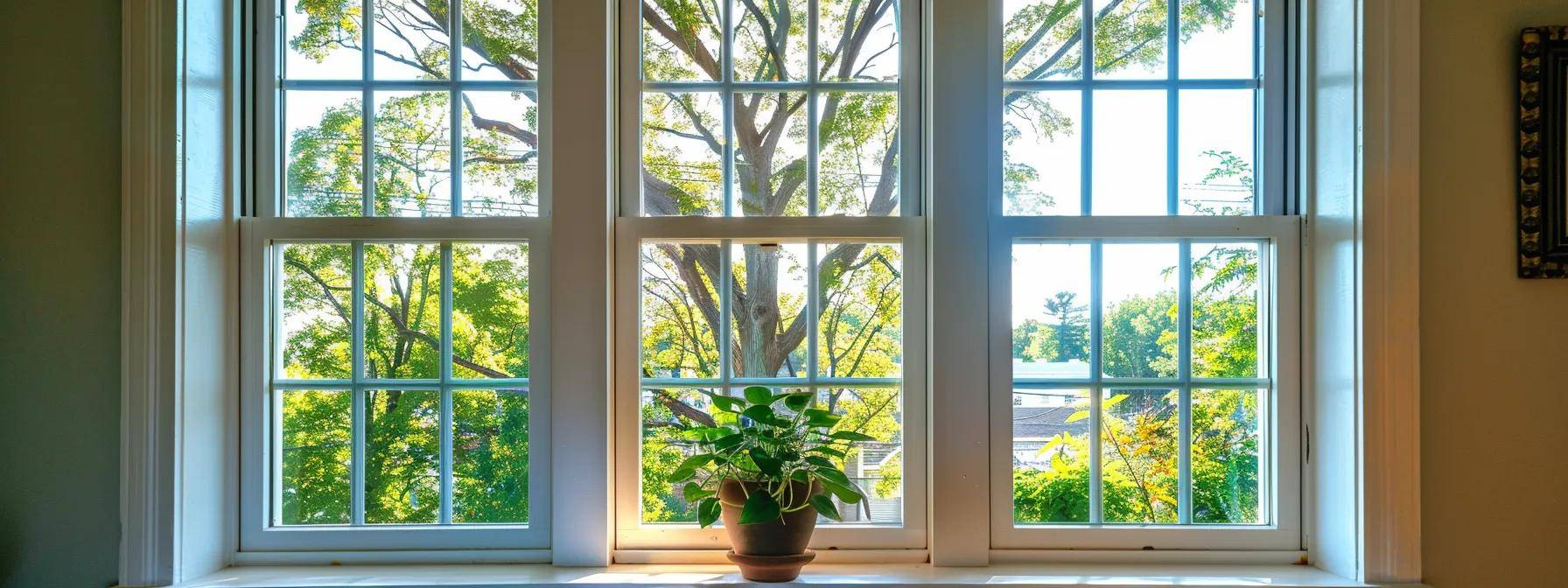
Massachusetts homeowners must choose window types that enhance aesthetics while withstanding local weather extremes. The ideal window type depends on energy efficiency, durability, maintenance, and architectural compatibility. Whether selecting classic options like double-hung windows or modern styles such as bay windows, understanding each type’s features is essential for a successful replacement project.
What Are the Features and Benefits of Double-Hung Windows?
Double-hung windows remain popular in Massachusetts due to their timeless design and ease of use. With two vertically moving sashes, they offer versatile ventilation and suit a range of architectural styles. The design allows easy inward tilting for cleaning, a key benefit for multi-story homes.
Modern double-hung windows are built with insulated frames and advanced glazing that reduce heat loss in winter and minimize solar heat gain in summer. Many feature Low-E coatings and argon gas fills for improved energy savings and indoor comfort. Their classic aesthetic also boosts curb appeal and property value, while enhanced locking mechanisms and durable materials improve overall security.
How Do Casement and Bay Windows Compare for Massachusetts Climates?
Casement windows, opening outward with a crank mechanism, are renowned for creating an airtight seal that minimizes heat loss and drafts—ideal for Massachusetts winters. Their design also offers unobstructed views and ample natural light.
Bay windows extend from the home to create additional interior space and a panoramic view. Although their larger surface area may lead to slightly higher heat loss if not insulated properly, they add significant charm and increased living space. Both casement and bay windows can be optimized with double or triple glazing and Low-E coatings, with the choice depending on priorities between airtight performance and enhanced interior aesthetics.
What Are Slider and Other Window Styles Available for Replacement?
Slider windows, featuring horizontally sliding sashes, offer a modern, space-saving design suitable for wide openings. They provide reliable ventilation and natural light with minimal maintenance due to their simple design.
Other options include awning windows, which hinge at the top and open outward—ideal for rainy conditions—and fixed windows that maximize views without an opening mechanism. Innovative styles like tilt-turn windows provide dual functionality for ventilation and easy cleaning. Homeowners should select a style based on the window’s placement, interior layout, and desired energy-saving features.
How Do Window Styles Affect Energy Efficiency and Home Design?
Window design impacts both energy efficiency and overall home aesthetics. Properly positioned and sized windows reduce reliance on artificial lighting and HVAC systems by optimizing natural light and ventilation. Modern windows feature enhanced seals, high-performance glazing, and energy-efficient materials that reduce air infiltration and thermal bridging.
From a design perspective, contemporary styles with clean lines create a sleek look, while traditional styles complement historic homes. Ultimately, the right window style improves insulation and ventilation and enhances a home’s architectural appeal and market value.
What Window Materials Should Massachusetts Homeowners Choose?
Choosing the right window material is crucial for performance and longevity. Massachusetts homeowners must weigh durability, thermal performance, maintenance, and cost when selecting between vinyl, wood, fiberglass, and aluminum. Each material offers unique advantages in a climate with variable weather conditions.
What Are the Advantages of Vinyl Windows for Massachusetts Homes?
Vinyl windows are popular for their energy efficiency, low maintenance, and cost-effectiveness. Made from polyvinyl chloride (PVC), they resist moisture, rot, and weather fluctuations. Multi-chambered vinyl frames enhance insulation, reducing heating and cooling costs. Their resistance to fading and warping ensures a consistent appearance over time, and modern vinyl windows are available with advanced glazing, like double or triple-pane glass with Low-E coatings, which further boost thermal performance while lowering greenhouse gas emissions.
How Do Wood and Fiberglass Windows Compare in Cost and Maintenance?
Wood windows offer natural beauty and timeless appeal, enhancing traditional and modern home aesthetics, but they require regular upkeep through painting or staining and usually incur higher initial costs. In contrast, fiberglass windows offer a modern, durable alternative with low maintenance. They resist warping, corrosion, and breakage even in variable climates. Although fiberglass can be more expensive initially, its longevity and superior energy efficiency often make it cost-effective over time.
When Are Aluminum Windows a Suitable Option?
Aluminum windows are valued for their slim sightlines, permitting larger glass areas and unobstructed views. They are durable and resistant to harsh weather but are less energy-efficient unless equipped with a thermal break due to aluminum’s heat-conducting properties. Their sleek, contemporary appearance and low maintenance make them a good choice for coastal areas, though they may not match the insulation performance of vinyl, wood, or fiberglass.
How Does Material Choice Impact Energy Efficiency and Longevity?
The material of a window greatly affects its energy efficiency and longevity. Vinyl and fiberglass typically offer excellent insulation and energy savings, while well-maintained wood windows provide both aesthetic appeal and good thermal performance. Fiberglass stands out for its durability and resistance to weather extremes. Aluminum, though robust, requires thermal breaks to improve energy performance. The best choice balances upfront costs with long-term savings, reduced maintenance, and overall performance.
How Much Does Window Replacement Cost in Massachusetts?
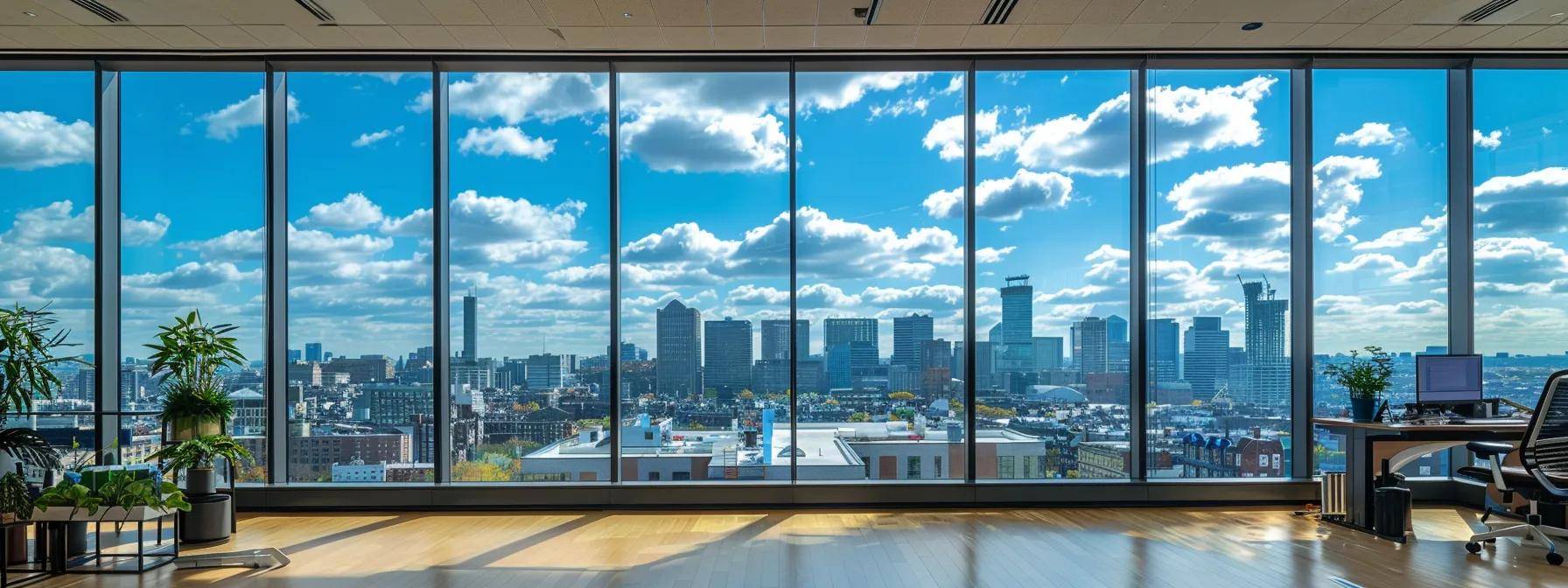
Window replacement costs in Massachusetts vary based on window type, material, size, and customization. Quality installations that promise improved energy efficiency and durability come at a premium, with overall costs including both materials and labor differing by local market conditions and project complexity.
What Factors Affect the Cost of Window Replacement?
Key cost drivers include the number and size of windows, the selected window type (double-hung, casement, bay, etc.), and material choices for frames and glazing. Labor intensity—especially in historic homes requiring extra care—also impacts costs. Geographic factors, such as urban versus rural pricing, and the need for custom designs or finishes further influence the final expense. Obtaining multiple quotes is advisable to ensure fair pricing and to factor in long-term benefits from energy-efficient windows.
How Do Window Type and Material Influence Pricing?
Vinyl windows tend to be more affordable, while custom wood or premium fiberglass options with advanced Low-E coatings command higher prices due to superior durability, insulation, and aesthetic appeal. Casement and bay windows, with their larger glass areas and specialized designs, typically have higher costs compared to traditional double-hung windows. Higher performance ratings, such as better U-values and lower solar heat gain coefficients, can increase upfront costs but provide long-term savings.
What Financing Options Are Available for Window Replacement in Massachusetts?
Massachusetts homeowners can choose from various financing options. Many contractors, including DD Construction, offer in-house financing or partner with financial institutions to provide low-interest home improvement loans. Home equity loans or lines of credit are also common, and state programs like Mass Save offer rebates and tax credits for energy-efficient upgrades. Careful review of financing terms and multiple quotes can help ensure affordability and long-term savings.
Are There Local Rebates or Incentives for Energy-Efficient Windows?
Local and state incentives, such as those from the Mass Save program, make energy-efficient window upgrades more affordable. These rebates help offset a portion of the cost and reward homeowners for reducing energy consumption and greenhouse gas emissions. To qualify, windows must meet specific Energy Star ratings and local building codes. Rebates may be provided as cash back or as a discount on project costs, and some programs are designed specifically for energy-efficient home improvements.
How Does the Window Replacement Process Work for Massachusetts Homeowners?
A seamless window replacement process in Massachusetts starts with an initial consultation and energy home assessment to determine the optimal window types and materials for the home’s design and climate. After defining the project scope, a reputable contractor provides a detailed estimate covering material, labor, and permit fees.
What Are the Steps Involved in Professional Window Replacement?
Professional window replacement begins with a thorough inspection and precise measurement of existing windows. The contractor and homeowner then select the best window style and material based on energy efficiency, compatibility, and budget. Customized orders or preparations follow, and the old windows are carefully removed. The new windows are installed with attention to alignment, sealing, and insulation, including weatherproofing measures to prevent air leaks and moisture intrusion. A final inspection and cleanup ensure that the installation meets all performance and code requirements, with warranty documentation provided.
How Do You Choose a Reliable Window Replacement Contractor in Massachusetts?
Choosing the right contractor is essential for quality and long-term performance. Homeowners should consider contractors with extensive local experience, strong customer reviews, and proper certifications. Requesting multiple quotes, reviewing past work, and checking references are important steps. Reputable companies like DD Construction offer comprehensive warranties and excellent customer service, ensuring adherence to building codes and smooth project completion.
What Should Homeowners Expect During Installation Day?
On installation day, the replacement team prepares the work area by covering floors and furniture, then removes the old windows while preserving surrounding trim. Measurements are rechecked before the new windows are installed, leveled, insulated, and weatherproofed. The process is designed to minimize disruption, and a final inspection confirms correct installation and operation, with warranty and care instructions provided.
What Post-Installation Support and Warranties Are Typically Offered?
After installation, reputable contractors offer warranties on both materials and workmanship—often ranging from 10 to 20 years. Post-installation support may include scheduled maintenance, periodic inspections, and a customer service hotline for repairs or guidance. This follow-up service reinforces overall satisfaction and ensures that windows continue to operate efficiently over time.
What Are the Top Window Brands and Energy-Efficient Options Available in Massachusetts?
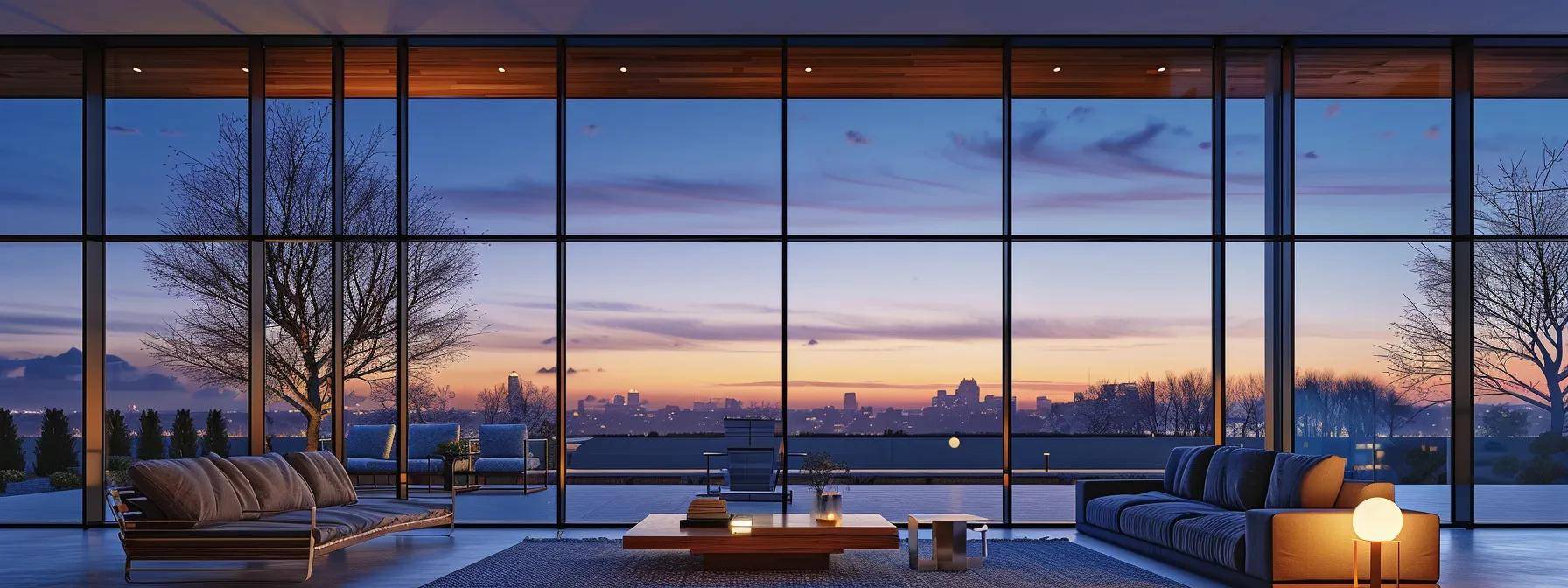
Selecting a reputable window brand is essential for durability, performance, and energy efficiency. Massachusetts homeowners can choose from several top-rated brands known for quality craftsmanship, innovative technology, and robust warranties. Energy Star–certified windows, in particular, promise lower energy consumption and improved home comfort through features like dual or triple glazing, Low-E coatings, and inert gas fills.
Which Window Brands Are Recommended for Massachusetts Homes?
Brands such as Andersen Corporation, Pella, and Marvin are frequently recommended due to their long-standing reputation for quality and energy efficiency. Andersen Corporation offers a wide range of durable designs suitable for renovations and new constructions. Pella provides various window types made with wood, vinyl, or fiberglass and advanced glazing technologies, while Marvin focuses on custom solutions that combine elegant design with superior thermal insulation.
How Do Energy Star Certified Windows Benefit Massachusetts Homeowners?
Energy Star certified windows are tested to meet strict performance standards, reducing heating expenses in winter and cooling costs in summer. By limiting heat transfer and air infiltration, these windows help maintain a consistent indoor temperature, reduce strain on HVAC systems, and provide substantial long-term savings. They also improve comfort by reducing drafts and noise while often qualifying for state rebates and tax credits.
What Are the Latest Trends in Smart and Sustainable Window Technologies?
Recent innovations in window technology include smart sensors and automated shading systems that adjust based on temperature and light changes, optimizing insulation and comfort. Advances in glass technology—such as self-cleaning coatings, electrochromic tinting, and enhanced UV protection—are also emerging. These features not only boost energy efficiency but also enhance user experience by offering customizable performance, all while contributing to a reduced carbon footprint.
Tables and Lists
Below is a table summarizing key comparisons of window materials available for installation in Massachusetts homes:
| Material | Energy Efficiency | Maintenance | Cost Range | Longevity |
|---|---|---|---|---|
| Vinyl | High | Low | $$ | 20-30 years |
| Wood | Moderate-High | High | $$$ | 20-40 years |
| Fiberglass | High | Low | $$$$ | 30-50 years |
| Aluminum | Moderate | Low | $$ | 20-30 years |
Before moving on, note that priorities such as energy savings, durability, and aesthetics drive the selection of suitable window materials. Customizing choices from leading brands provides tangible benefits in thermal performance and home value.
Below is a detailed list summarizing the common steps in professional window replacement:
- Initial Consultation – Accurate Assessment and Planning: Homeowners begin with an assessment to determine window dimensions, energy loss points, and design requirements. Contractors evaluate conditions and develop a tailored plan that meets building code regulations.
- Design and Material Selection – Tailored Solutions: Based on the consultation, homeowners choose the window type and materials that balance energy efficiency, cost, and aesthetics, which may include custom finishes and glazing options.
- Detailed Measurements – Precision Is Key: Accurate measurements ensure a snug fit and prevent air leaks, directly impacting energy performance.
- Procurement and Scheduling – Coordinated Delivery: Once designs are finalized, the contractor orders the windows and coordinates delivery to minimize disruption and accelerate the project timeline.
- Removal of Old Windows – Preparing the Opening: Old windows are carefully removed to avoid damage, with sealing of any weather barrier disruptions to ensure maximum efficiency.
- Installation of New Windows – Professional Precision: New windows are installed with focus on alignment, sealing, and insulation, including weatherproofing and the use of insulating foam.
- Final Inspection and Cleanup – Ensuring Quality: A final inspection ensures that all standards and codes are met, and the area is cleaned with warranty details provided to the homeowner.
Frequently Asked Questions
Q: What are the primary energy benefits of replacing old windows in Massachusetts homes? A: Upgrading outdated windows improves energy efficiency by reducing heat loss and air leakage. Modern windows with double or triple glazing, Low-E coatings, and thermal breaks stabilize indoor temperatures, reducing heating and cooling bills and lowering greenhouse gas emissions.
Q: How do modern window technologies help in reducing the home’s carbon footprint? A: Advanced window technologies use specialized glass coatings and insulated frames to reduce thermal transfer, thereby lowering heating and cooling needs. Energy Star windows, for example, can reduce energy usage by up to 20%, cutting costs and greenhouse gas emissions.
Q: What financing options are available for window replacement projects in Massachusetts? A: Homeowners can choose from in-house contractor financing, low-interest home improvement loans, home equity loans, and state programs like Mass Save, which offer rebates and tax credits. It is advisable to obtain multiple quotes and review financing terms carefully.
Q: How long does the window replacement process typically take from start to finish? A: The process may take from one day to several days based on the number of windows and project complexity. It involves consultation, measurement, procurement, removal of old windows, installation, and final inspection, with minimal disruption when performed by professionals.
Q: Are there any post-installation maintenance requirements for new windows? A: Although modern windows are low maintenance, routine cleaning and periodic inspections are recommended to check for seal failure or condensation. Following manufacturer care instructions and scheduling maintenance can extend window lifespan and preserve energy efficiency.
Q: What are the environmental benefits of using energy-efficient windows in my home? A: Energy-efficient windows reduce the energy required for heating and cooling, thereby lowering fossil fuel consumption and carbon emissions. They qualify for rebates and tax credits and help build a more sustainable community.
Q: How do I choose the right window contractor for my Massachusetts home? A: Research licensed professionals with local experience, positive reviews, and an extensive portfolio. Request multiple quotes, verify warranties, ensure adherence to building codes, and choose a contractor who offers clear communication and post-installation support.

